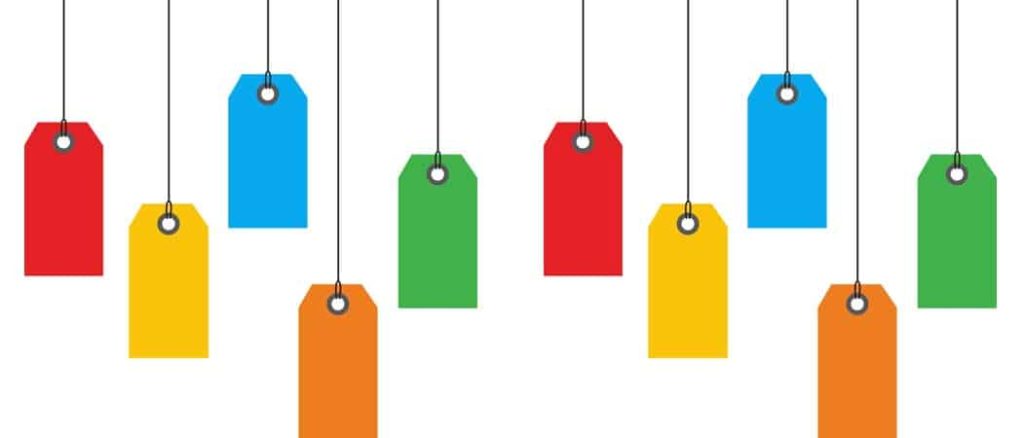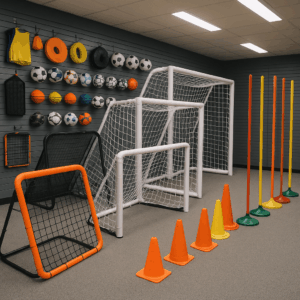
I recently came across more content writers and marketers advocating to clients that they need to use blog tags and categories to help their SEO. Too many of them want to use a lot of tags. I mean LOTS of tags!
They believe that simply adding blog tags and categories will help your SEO. I’m always a bit surprised that this tactic is still being used. The problem is usually center around the tags, although categories can also be an issue.
Just as an aside I previously worked for Google as a Quality Rater where my job was to identify problems like I describe below.
So, let’s start the discussion off right…
Using Blog Tags Will Give You an SEO Boost. THIS IS A MYTH.
In the “Old Days” (although I’m skeptical about this too) it was believed that adding tags to your posts would send a signal to Google and the search engines to tell them what your post is about. And would help you rank. It seems that many marketers have held on to this belief and maybe with the advent of Twitter, Instagram, Facebook, and LinkedIn they seem to think that tags function as hashtags (I.e. #seomyth). This just isn’t true.
An Example of What Not to do With Blog Tags
One of the most disturbing examples I’ve seen recently looked something like this.
The title of the post was How to Prepare for Your First Day on the Job.
Category: Career Tips
The copywriting agency then used the following tags:
Job Search Advice
Career Tips
First Day On The Job
Preparing For Your First Day
Do you notice anything strange? Yes? No? Let’s take a step back to better understand what the problem is.
What Are Blog Tags and Categories Really Used For?
Organization. There is actually no reason you have to use categories or tags, but it is a good way to organize content.
For example. Let’s say you have a site about Cycling, and you write content about mountain biking, road bikes, biking gear, bike parts, and training. These would be your high-level categories.
Drilling down into the content you might be writing about helmets, shoes, gloves, cranksets, pedals, tires and so on. An example post might be.
Title: Clothing Checklist for Mountain Biking the Alps
Categories: mountain biking, biking gear
Tags: clothes, gloves, shoes, mt biking pants (assuming you’ve written other articles about these items and not always in the same post)
Just to be clear adding these categories and tags to the page will not help with on-page SEO.
What you need to think about is that each time you create a category or tag you are creating a way to organize your content. This also means that with most content management systems (CMS) you are also creating a page. Yes, the pages that are created can be crawled by Google, but it doesn’t mean they are of value to Google. Or will help your search.
Most category or tag pages that are automatically created by the CMS are pretty terrible. They are just a list of all the pages that included the tag. They probably have the tag or category as a title. While this may be a good way for users to find all the content related to a particular tag, these pages typically don’t rank well anymore.
Here’s Where it Gets Messy
If we go back to my example.
The title of the post was How to Prepare for Your First Day on the Job
Tags:
Job Search Advice
Career Tips
First Day On The Job
Preparing For Your First Day
In this case, the tags Job Search Advice and Career Tips have been added to every post about job searching. That means both pages will have the exact same list of posts, which means they have duplicate content. Plus, the category is also “Career Tips.” Now you have three duplicate pages. This won’t directly penalize the site, but Google won’t know what to rank and might throw them both out.
Related article: Is there A Penalty for Duplicate Content? – Breaking the Myth
Even worse the title and remaining tags are very similar.
Title: How to Prepare for Your First Day on the Job
Tags: First Day On The Job, Preparing For Your First Day
In this case, the two tags were only used on this post so there are two identical tag pages with titles that are very close to the title of the original post. Google understands that all three phrases are very close in meaning, so now this isn’t just duplicate content but you’re competing with yourself.
To make matters worse. If the idea was to create these tags so that there are variations of the keyword on the page so the page will rank better, it could potentially be penalized for keyword stuffing. And this one is a REAL penalty! The more tags like this you use the higher the chance of getting hit with the penalty.
Using the ‘nofollow’ Attribute is Not a Valid Solution
When I’ve asked marketers that recommend using multiple similar tags and categories, I often get the response, “Well we can just set them to ‘nofollow’”. My first thought is always, then what’s the point. Why do they think they are useful for SEO? Maybe, keyword stuffing? Anyway, I digress.
Blocking crawlers from pages is not a valid tactic for preventing duplicate content and Google even recommends not doing it on their Search Console Help article. Avoid creating duplicate content
“Google does not recommend blocking crawler access to duplicate content on your website, whether with a robots.txt file or other methods. If search engines can’t crawl pages with duplicate content, they can’t automatically detect that these URLs point to the same content and will therefore effectively have to treat them as separate, unique pages.”
Actually, they also hint at the issues I’ve been describing in the same support article.
“Understand your content management system: Make sure you’re familiar with how content is displayed on your web site. Blogs, forums, and related systems often show the same content in multiple formats. For example, a blog entry may appear on the home page of a blog, in an archive page, and in a page of other entries with the same label.”
If I haven’t scared yet, let’s go back to my comment about tag and category pages “typically don’t rank well anymore.”
Why Doesn’t Google Like Your Category and Tag Pages?
Google has become much more adept at understanding content and the intent of searchers. If someone is searching for Career Tips, Google is not going to serve that searcher a page with a listing of a bunch of articles about Career Tips. This is sometimes called Thin Content. They are going to find what they think is the best content/page about Career Tips. Showing pages with lists is something that they stopped way back in 2011 when the pushed the Panda Algorithm Update.
It is possible to get category pages to rank, but you need to something custom rather than rely on the standard WordPress format. The page needs to be useful and compelling. I mean why else would anyone want to click through to the page?
How To Use Tags and Categories Effectively?
By now if you’ve read this far you probably think I’m categorically against using tags and categories. Well, I’m not. You just have to know how to use them properly. Here are some recommendations on how to do this.
- Think about and plan how you would like to organize your content. Plan your tags and categories wisely.
- Be judicious in the number of tags you use. A post most likely doesn’t need 10 tags.
- Make sure you are grouping content and not creating one-off tags.
- Don’t create tags or categories that are similar to the title of the post. It might happen naturally that they are close, (Title: Best Career Tips for Millennials. Category: Career Tips) but if you follow the other rules this should be ok.
- Think of categories as higher-level grouping and tags as a more granular way to group content across categories.
Confused? We Can Help!
As always if you have questions or need help with SEO or building a digital strategy, let us know by heading over to our Contact page.





